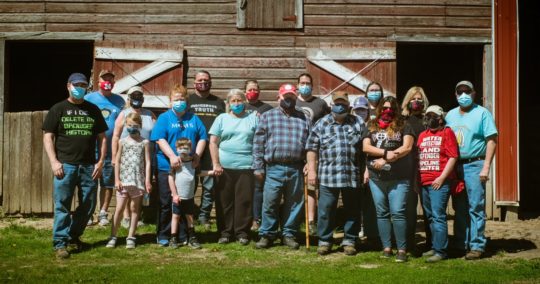Update, June 4: AP is reporting the government has allowed TransCanada to restart pipeline under tight restrictions. We are waiting to see the memo from DOT to confirm.
Original post from June 3:
We just heard that the US Department of Transportation has shut down TransCanada’s first pipeline called Keystone I because of the risks and dangers associated with all of the recent leaks and spills. This line runs down the eastern part of Nebraska.
We hope this is yet another wake-up call to state and federal elected officials–like Rep. Terry (R-NE2)–who have called to rush the permit process for TransCanada’s second pipeline still under review. The DOT letter confirms what many of us have been saying for over a year: this pipeline is too risky and threatens our land, water and economic activity.
If there was ever a time to stand with landowners like Randy, instead of a risky pipeline project, it’s NOW.
Blog from NWF’s Tony Iallonardo:
As the State Department likely wraps up a comment period on the second round of environmental review for the controversial Keystone XL pipeline on Monday, the US Department of Transportation today issued a first-ever “Corrective Action Order” for the leak-prone one year old Keystone pipeline. The order requires TransCanada to meet 14 conditions before the pipeline can restart and raises serious doubts about TransCanada’s ability to build safe tar sands pipelines.
Ryan Salmon, NWF energy policy advisor sees it this way, “We shouldn’t supersize a spill-prone pipeline that’s proven to be a hazard.”
DOT’s Jeffrey Wiese writes in the order,
“After evaluating the foregoing preliminary findings of fact, I find that the continued operation of the pipeline without corrective measures would be hazardous to life, property and the environment. Additionally, after considering the circumstances surrounding the May 7 and May 29, 2011 failures, the proximity of the pipeline to populated areas, water bodies, public roadways and high consequence areas, the hazardous nature of the product the pipeline transports, the ongoing investigation to determine the cause of the failures, and the potential for the conditions causing the failures to be present elsewhere on the pipeline, I find that a failure to issue this Order expeditiously to require immediate corrective action would result in likely serious harm to life, property, and the environment.”
See the order here: 320115006H_CAO_06032011
Conservations groups and members of Congress have warned that TransCanada’s pipelines are unsafe and put property and the environment at risk.



